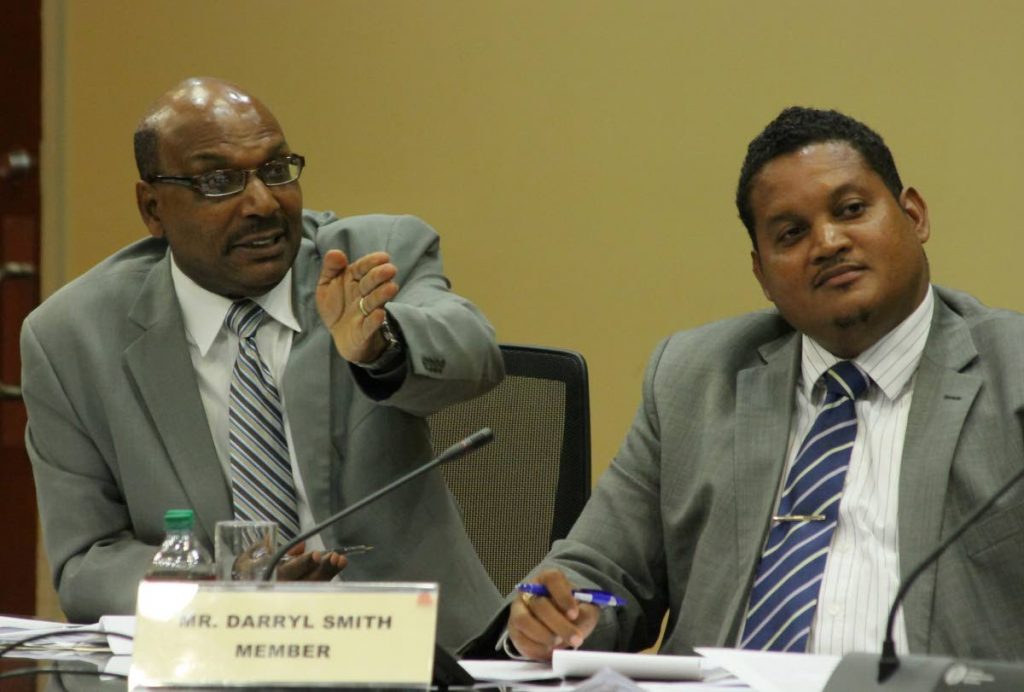JSC for democracy

Democracy. This is described as “a system of government by the whole population, usually through elected representatives; an egalitarian and tolerant form of society.” (Concise Oxford).
We here have a constitutional democracy which remains quite deficient in “representing” the people. Slowly but robustly filling this breach is the list of active joint select committees (JSC).
From the age-old neglect of the constitutionally-driven Office of the Director of Public Prosecutions (DPP), corruption-prone Educational Facilities Company, the infamous Estate Management Business and Development Company to the administration-challenged Land Settlement Agency and Self-Help Commission, the flush of JSCs, fully spirited and purpose-focussed, are now breaking new ground of public inquiry and accountability — even with some embarrassment to high office-holders.
It now seems democracy moving into high gear. Our parliament has a range of committees — sessional, standing, house, privileges, statutory instruments, business, special select, public accounts, public accounts enterprise, departmental committees. A JSC is empowered through the parliament to send for persons, papers and records relating to the subject being investigated. Following the British Westminster traditions, our JSCs have three important features: limits to its power to summon, privilege, and members’ integrity. The JSC is really parliament in action – comprising an equal number from both houses.
The historical foundation of the JSC resides in its power to summon persons, demand papers and records.
The JSC’s power to compel persons to appear is now limited, thus creating an almost fatal blow to the JSC principle. The JSC on its own does not yet have the power to compel an official or citizen to appear.
It can, however, make a report to parliament, and possibly, depending on the circumstances, the attorney general can exercise some power in this respect. A similar situation applies to a member refusing to appear. It remains to be seen whether our parliament will legislate to applying this residual power to strengthen the JSCs.
Reviewing precedents on the historical powers of parliament, Canadian MP, Derek Lee, states: “Based on principles firmly established on constitutional and parliamentary law, a house of parliament has the full authority to summon and compel the attendance and testimony of any person, and to summon and compel the production of any document,”(Power of Parliament to Send for Persons, Papers and Records, University of Toronto Press, 1999).
Parliament, by tradition, not only has privileged freedom of speech, but the right to punish for contempt and make its own rules.
Sometimes mistakenly called the “highest court of the land,” our Parliament is less than supreme. Parliament may make laws unless they are “shown not to be reasonably justifiable in a society that has a proper respect for the rights and freedoms of the individual,”(Constitution, Section 13).
This implies that 41 MPs and 31 senators could sit, argue and decide to make a law that has no “respect for the rights and freedoms of the individual” as required in Sections 4 and 5 of the said constitution to which these members have sworn to upkeep. And it is left to an individual, a judge, to determine this? Quite intriguing!
For those who feel radio and television have an unfettered right to record events in parliament, check again. Firstly, the media is there through general permission of the president or speaker, not through “freedom of the press” as stated in the Constitution.
Secondly, there are controls. Recordings shall not be used for commercial advertising, for election advertising, or for ridicule or satire (watch it Rundown).
The early beginnings of the JSC expansion faced some teething problems.
For example, as chairman of the early JSC empowered to inquire and report on service commissions and municipal corporations, I understood the spirit of the Ramesh Maharaj-driven legislation meant public broadcast for the hearings.
The then Senate president, quite cautiously, objected. I resorted to legal advice and the Solicitor General’s opinion.
Yes, it was open to public broadcast unless the entire house says otherwise. JSC work then became alive and direct.
Th public is not too happy with the behaviour and performance of our parliamentarians.
A strict code of ethics should help just as the House of Commons has. Then there is also a Parliamentary Commissioner of Standards. But meanwhile, our bipartisan JSCs are doing a good job for our democracy.


Comments
"JSC for democracy"